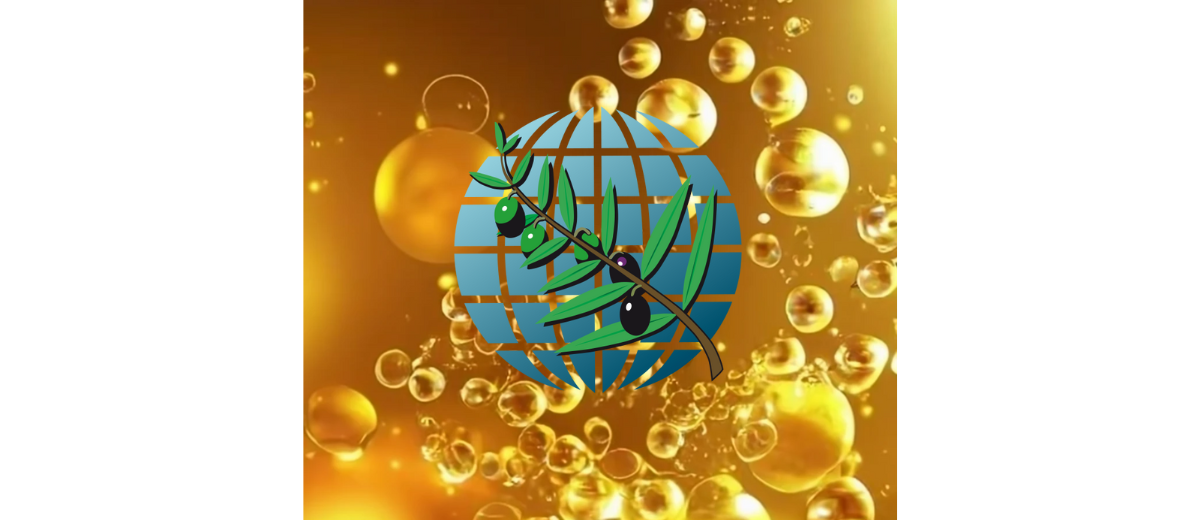The International Olive Council held its 106th session of the Council of Members at the headquarters of the Organisation (Calle Principe de Vergara, 154) in Madrid, from 21 to 24 November 2017.
Representatives of the eight member countries of the IOC (Algeria, Argentina, State of Palestine, Libya, Morocco, Tunisia, Turkey and the European Union) participated in the meetings of the various technical Committees. The Islamic Republic of Iran was represented as a signatory of the 2015 Agreement. The chairperson of the IOC Advisory Committee on Olive Oil and Table Olives attended the meetings as an observer.
The Economic and Promotion Committee met on Tuesday morning. The Executive Secretariat reported on the production, consumption and trade figures for the olive oil and table olive crop years 2015/16 (definitive), 2016/17 (provisional) and 2017/18 (estimated). The members of the Committee also examined the producer prices and the influence of monetary factors on the international trade of olive oil and adopted the definitive balance of the 2015/2016 crop year. The Members were also informed of the various activities proposed by the Executive Secretariat in relation to the olive economy, in particular the international study on consumer behaviour in member and non-member states; the harmonisation of customs codes for the main categories of olive oil; the IOC market newsletter; the website and the observatory project.
As regards the promotion of the consumption of olive products, the Council of Members took note of the meetings held with different institutions as part of the promotion campaign in Japan, and the activities planned as part of the new promotion campaign in the United States, with a view to defining a strategy. The progress made in the promotion of the IOC trade standard with the Japanese and Chinese authorities was also discussed. The members of the Committee decided to give priority to the promotion campaign in the United States, after which promotion activities in China and Australia would be considered, according to budgetary availability.
The IOC Executive Secretariat reported that grants had been awarded to member countries for the organisation of activities for the celebration of World Olive Day 2017.
The Technology and Environment Committee met in the afternoon of 21 November. In the meeting, Members heard about progress that had been made in activities in this area since the 105th session, the work plan for 2018, the four-year plan (2018–2021), and the future guidelines.
During this meeting, the Executive Secretariat gave a detailed overview of all the projects carried out and of the activities planned in the coming years, namely the project for the certification of olive plants through the IOC network of olive germ plasm banks (True Health Olive Cultivar), the international seminar on Xylella fastidiosa, the seminar on the results of the global CO2 balance in olive growing, the activities on the IOC trade standard and the provision of IOC technical assistance to member countries in order to set up testing laboratories and IOC-recognised virgin olive oil tasting panels, as well as the programme of activities for technical activities specifically requested by IOC member countries and grants for specialisation studies, Master’s and Phd degrees.
The meeting of the Chemistry and Standardisation Committee was held the next morning. The members of the Committee reviewed the activities that had been carried out since the 105th session of the Council of Members over the second half of 2017. These activities included: work on the methods of analysis of olive oils and olive pomace oils; the organisation of the 17th IOC Mario Solinas Quality Competition, 2017 (single edition); work on the organoleptic evaluation of virgin olive oils and workshop on organoleptic assessment (18 October 2017); organisation of ring tests and proficiency check tests for physico-chemical testing laboratories and tasting panels; work for the harmonisation of the standards on olive oils and olive-pomace oils (25th meeting of the CCFO, ISO TC 34 SC 11); work on the nutritional properties and health benefits of olive oil; preparation of the international conference on olive oil and the prevention of diseases, which would be held on 17 January 2018 in UC Davis (California); work for the harmonisation of the customs codes and the quality control of olive oils sold on import markets.
The Administrative and Financial Affairs Committee met in two sittings, on 22 and 23 November, to address routine business concerning the IOC budget, Members’ contributions, proposed amendments to administrative procedures, etc.
The last meeting of this Committee was followed by the awards ceremony of the International Extra Virgin Olive Oil Competition for the IOC Mario Solinas Quality Award 2017, attended by the Heads of Delegation of the IOC, the award winners and the members of the international jury.
The IOC celebrated World Olive Day in the presence of representatives of the delegations of member countries, representatives of the sector, national authorities and members of the diplomatic corps. The Executive Director read out a declaration common to all IOC member countries celebrating World Olive Day. His message highlighted the role of olive growing in the common cultural heritage of Mediterranean peoples.
The Council of Members met in its plenary sitting on 25 November. The sitting was opened by the Ambassador of Israel to Spain, H.E. Daniel Kutner, who personally submitted to the Executive Director a copy of the instrument of Israel’s ratification of the International Agreement on Olive Oil and Table Olives, 2015, by which the country acceded to the status of Member of the International Olive Council. The Council of Members adopted thirty two decisions submitted by the Executive Secretariat and the chairpersons of each Committee – including the IOC Advisory Committee on Olive Oil and Table Olives– presented the outcomes of the proceedings of their respective Committees.
.









